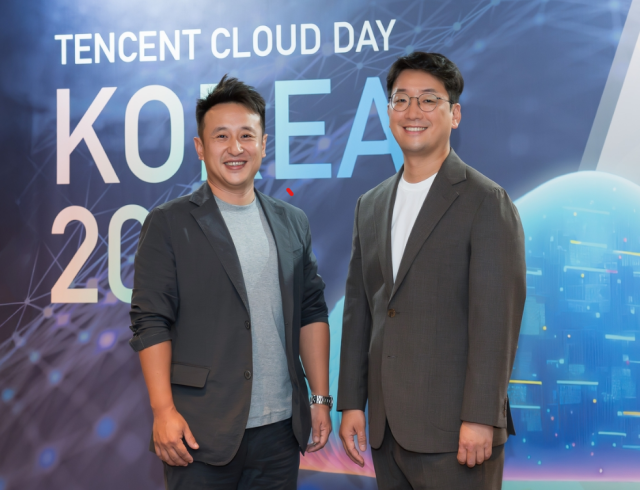
During an interview in central Seoul earlier this week, general manager Nicky Fang of Tencent Cloud, a cloud computing service arm, unveiled the company's ambitious plans to further accelerate its business here, with a focus on gaming, e-commerce, and entertainment. In particular, it seeks to leverage its expertise in the entertainment industry including online video streaming to compete with global archrivals and other competitors.
Since making an inroad into South Korea in 2018, Tencent Cloud currently operates two availability zones (AZs) in Seoul, in addition to offering exabyte-level storage across 56 availability zones in 21 regions globally.
Fang particularly emphasized the company's "irreplaceable strength" in the entertainment industry, citing its WeChat messaging platform with over 1.4 billion users and its strong presence in the gaming sector, which sets it apart from other cloud-service competitors.
South Korea's cloud business market has been dominated by the big three global players, with Amazon Web Services holding a lion's share of 60.2 percent, followed by Microsoft Azure at 24 percent and Google Cloud at 19.9 percent, according to a 2023 survey by the Ministry of Science and ICT.
Specific figures for Tencent Cloud's market presence in South Korea are not readily available due to its recent entry here.
Tencent Cloud's latest expansion plans come after another Chinese giant, Alibaba Cloud, opened its second data center in Seoul last month, about three years after its first one in 2022. Welcoming what could be a heated competition with Alibaba Cloud, Fang said, "Alibaba Cloud's addition of another data center in South Korea proves that our strategy of prioritizing the South Korean market was correct."
He vowed the company aims to achieve double-digit annual growth but declined to provide details on sales revenues.
Copyright ⓒ Aju Press All rights reserved.

